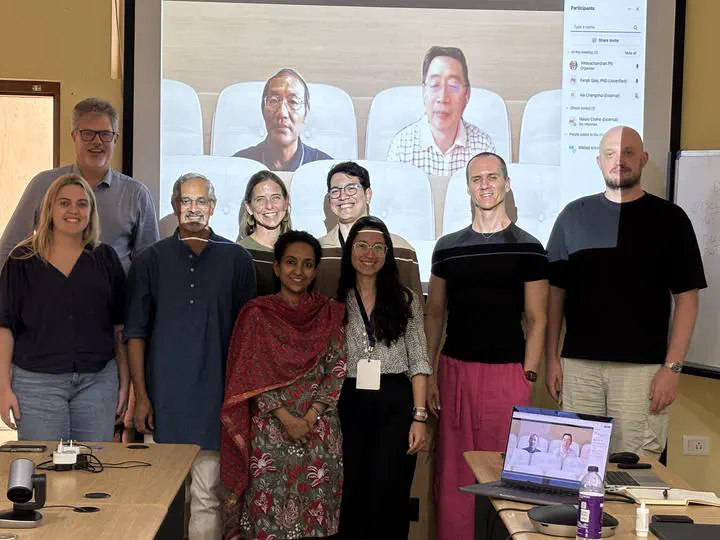Project meeting in IISc, CAOS

PARADIGM project meeting held at IISc Bangalore: advancing BRICS coastal ocean modeling
The PARADIGM project partners convened at the Centre for Atmospheric and Oceanic Sciences (CAOS), Indian Institute of Science (IISc), Bangalore, for a key in-person coordination meeting. Researchers from Brazil, Russia, South Africa, and India participated on-site, while colleagues from China joined remotely, ensuring full representation of the BRICS partnership.
The meeting focused on assessing the global ocean reanalyses on regional scale. India presented progress in the Bay of Bengal, with emphasis on freshwater dynamics. Brazil shared results from the Southwestern Atlantic, highlighting mesoscale validation and regional predictability. Russia showcased Arctic modeling efforts with the NEMO-WRF-WW3 system and satellite-sourced salinity corrections, while South Africa updated the group on high-resolution operational modeling in the Benguela Current. China contributed remotely, reporting on the performance of their benchmark FIO-COM model in the marginal seas.
A major outcome was the collective plan to prepare a co-authored scientific paper comparing global ocean reanalyses across all five regions using a unified analysis framework. Each country will contribute standardized figures, regional summaries, and diagnostics for joint evaluation. Target journals under consideration include BAMS, Ocean Modelling and Frontiers in Marine Science.
Looking forward, the consortium discussed proposals for future bilateral, trilateral, and multilateral grant applications, with strong interest in the upcoming 2025 BRICS STI Framework call. A potential Phase 2 of PARADIGM was outlined, possibly framed as a BRICS+ flagship initiative, focusing on high-resolution modeling, AI integration, disaster resilience, and societal applications. The potential name for the phase-2 was announced: “PARADIGM-RA: Regional Applications of Coastal Ocean Modelling”.
The meeting also emphasized student exchange, training initiatives, and the value of deepening institutional cooperation. The Bangalore gathering reaffirmed PARADIGM’s commitment to operational oceanography in support of sustainable coastal futures across BRICS nations.